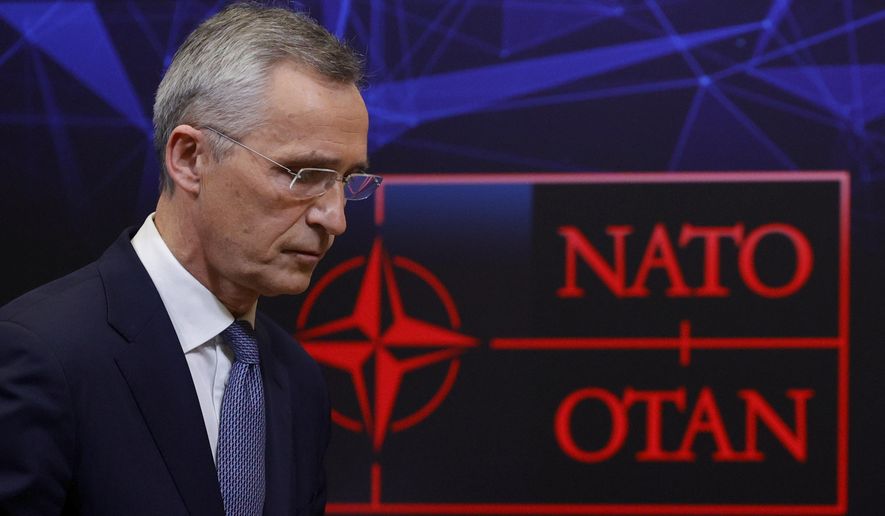Russian and NATO officials held a “serious and direct exchange” over soaring tensions in Ukraine and eastern Europe, NATO Secretary-General Jens Stoltenberg said Wednesday, asserting that the Western military alliance still has deep concerns about the Kremlin’s policy but hopes for more talks to ease the crisis.
The NATO-Russia Council met for four hours — slightly longer than originally budgeted — in Brussels, with the U.S. and its allies asserting again their “serious concern” over Russia’s massive military buildup along the border with neighboring Ukraine.
Mr. Stoltenberg gave no sign a breakthrough had been achieved, but said it was a good sign the two sides were talking directly after weeks of threats and brinkmanship that have raised concerns all along Russia’s western border.
“There are significant differences between NATO allies and Russia on this issue,” he told reporters after the talks at the alliance’s headquarters.
“Our differences will not be easy to bridge, but it is a positive sign that all NATO allies and Russia sat down around the same table and engaged on substantive topics,” he added.
The NATO meeting was one of a trio of extraordinary diplomatic meetings this week aimed at heading off a shooting war in Ukraine, where Russia has been escalating its support of a pro-Moscow separatist movement fighting the Western-backed government in Kyiv.
U.S. and Russian diplomats conferred directly on Monday in Geneva, and the pan-European Organization for Security and Economic Cooperation (OSCE), which includes Russia and Ukraine, will discuss the crisis Friday in Vienna.
Wednesday’s meeting was the first for the NATO-Russia Council in more than two years, a sign of the deteriorating relations between the government of Russian President Vladimir Putin and the West.
The Biden administration has said it is willing to discuss Russian concerns about rising militarization of border areas across Eastern Europe, but it has rejected out of hand a Moscow demand that former Soviet states like Ukraine and Georgia be forever barred from full NATO membership.
Mr. Stoltenberg said NATO’s 30 member-countries were united against Russia’s more sweeping demands on alliance security policy and membership.
“No one else has anything to say, and of course, Russia does not have a veto,” he said.
Mr. Stoltenberg expressed hopes for more talks with Russia on European security issues but said the ball was in Mr. Putin’s court.
“NATO made it clear in the meeting that we are ready to schedule a series of meetings addressing a wide range of different topics, including missiles and reciprocal verifiable limits on missiles, in Europe. From the Russian side, they made clear that they are not ready,” the NATO leader said.
Deputy Foreign Minister Aleksandr Grushko and Deputy Defense Minister Aleksandr Fomin, representing Russia at the talks, were expected to talk to reporters later Wednesday.
Mr. Grushko had described the NATO talks as a “moment of truth” for the crisis.
• This article was based in part on wire service reports.
• David R. Sands can be reached at dsands@washingtontimes.com.




Please read our comment policy before commenting.